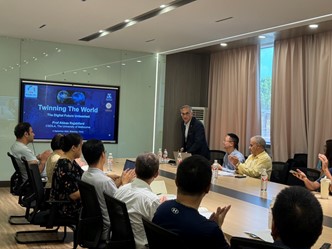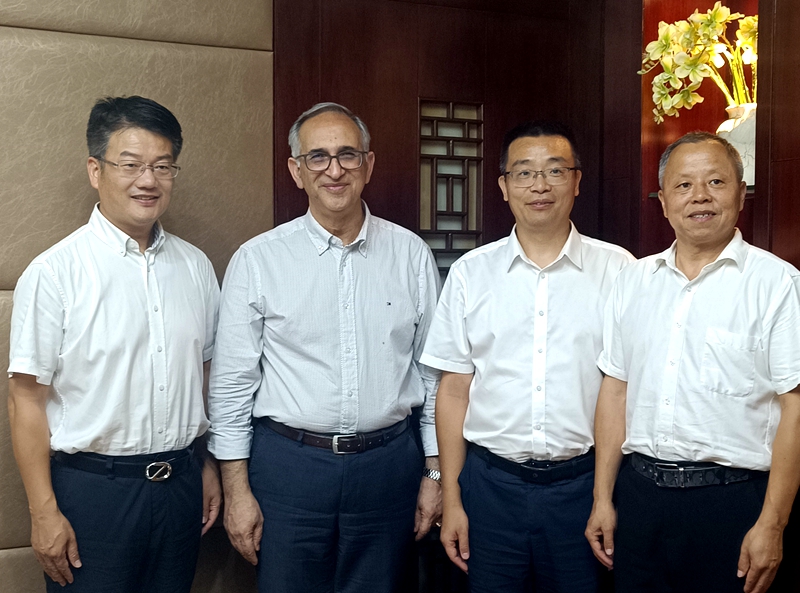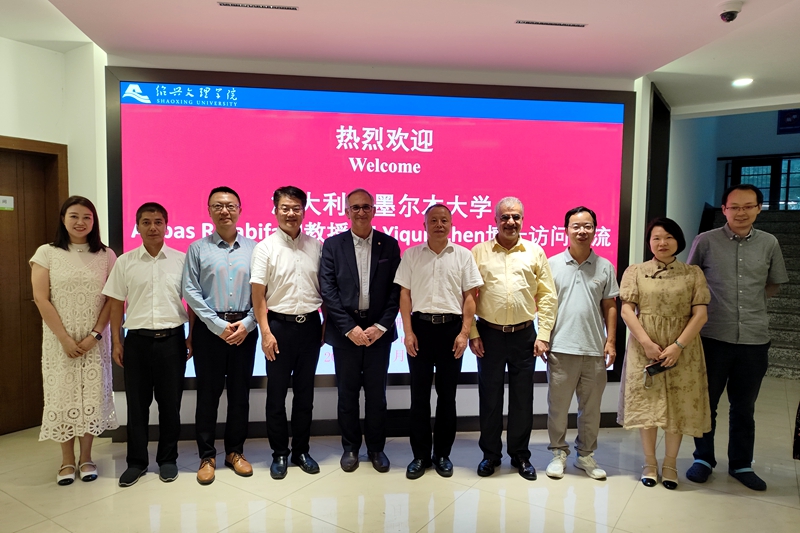On September 4th, The Institute of Artificial Intelligence, Shaoxing University, had the privilege of hosting the dilatation from The University of Melbourne, Australia. We welcomed Professor Abbas Rajabifard, a prominent academic and Dr. Yiqun Chen from the University of Melbourne, Australia.
Professor Rajabifard, a professor in the School of Engineering and Information Technology and the director of the Center for Spatial Data Infrastructure and Land Management (CSDILA), presented a presentation on Twinning The World - The Digital Future Unleashed and then followed by engaging discussion about potential collaborations and exchange programs between the two universities. The reception was led by Vice President Hu Yunjin, along with key representatives from the International Exchange and Cooperation Office, the School of Mechanical and Electrical Engineering, and the Institute of Artificial Intelligence. The discussions began with both parties introducing their respective institutions, followed by a focused dialogue on avenues for partnership. Key topics included establishing master's joint programs, short-term faculty exchanges, and joint research initiatives. Both sides expressed enthusiasm and reached a preliminary agreement to explore these collaborative opportunities further.

As part of the visit, Professor Rajabifard and his delegation toured the cutting-edge laboratories in the School of Mechanical and Electrical Engineering and the Institute of Artificial Intelligence. He also delivered insightful academic presentations, sharing his expertise with both faculty and students. His talks sparked lively discussions and highlighted the potential for meaningful academic and research exchanges.

The University of Melbourne, globally recognized for its excellence in teaching and research, holds a distinguished position in the international academic landscape. Ranked 13th in the 2025 QS World University Rankings, it is renowned for its contributions across multiple fields, and its involvement in this prospective partnership further elevates the significance of this collaboration.

Both parties were looking ahead for capacity building and education initiatives for sustainable development and collaboration. Next on our agenda, our university will launch a series of lectures, workshops, and other related scientific activities to build foundations for future collaboration and dedicate opportunities to the 2024 undergraduate and future students. These sessions will focus on orienting new students and fostering a strong foundation for their academic journey, particularly for those who may wish to study jointly at the University of Melbourne and Shaoxing University.
This visit marks a promising step towards strengthening international academic ties and promoting knowledge, innovation, and cultural exchange between our institution and the University of Melbourne.